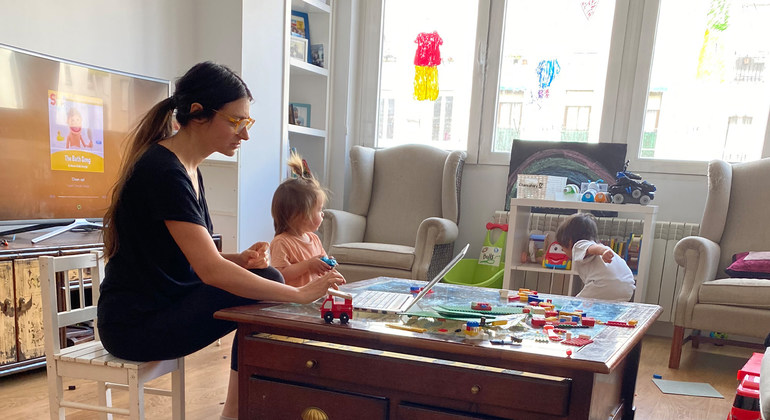The report by UNICEF’s Office of Research Innocenti, urges governments to improve and protect child well-being in the face of the economic, social and educational fallout from the COVID-19 pandemic.
“Many of the world’s richest countries – which have the resources they need to provide good childhoods for all – are failing children”, said Gunilla Olsson, Director of the research office, which is located in Florence, Italy.
“Unless governments take rapid and decisive action to protect child well-being as part of their pandemic responses, we can continue to expect soaring child poverty rates, deteriorating mental and physical health, and a deepening skill divide among children.”
Annual report card
The study is the latest in UNICEF’s Report Card Series, now in its 20th year, which ranks countries in the European Union (EU) and the Organization for Economic Cooperation (OECD) on childhood.
Worlds of Influence: Understanding what shapes child well-being in rich countries uses pre-pandemic data from 41 nations on children’s mental health, physical health, and academic and social skills.
The report suggests that among these countries, the Netherlands, Denmark and Norway are the best places to be a child.
Researchers also ranked countries based on their policies that support child well-being and other factors including the economy, society and environment, with Norway, Iceland and Finland topping the list.
Unhappy young lives
Key findings from the report include that in most countries, less than four-fifths of children, report being satisfied with their lives. Turkey posted the lowest rate of satisfaction, followed by Japan and the United Kingdom.
“Significantly poorer” mental health rates were found among children from less supportive families or those who are being bullied.
Suicide is a leading cause of death among people aged 15-19 years in rich countries, with Lithuania, New Zealand and Estonia recording the highest rate of young people who take their own lives.
Obesity on the rise
Overweight and obesity rates have risen in recent years, according to the report. Roughly one in three children in the EU and OECD nations are either obese or overweight, with rates in Southern Europe sharply increasing.
Researchers further found that on average, 40 per cent of children do not have basic reading and maths skills by age 15. Children in Bulgaria, Romania and Chile were deemed the least proficient.
Additionally, at least one in five children lack confidence in their social skills to make new friends, with children in Chile, Japan and Iceland listed as the least confident in this area.
The pandemic threat
Despite also highlighting progress in child well-being, such as the 95 per cent enrollment rate for pre-school aged learners, the authors fear COVID-19 could rollback these “important gains”.
Due to the pandemic, most children were kept out of school for more than 100 days, and young lives were impacted by stressors such as loss of family members and friends, poor access to healthcare, and lack of support, combined with economic loss.
With GDP expected to fall in practically all of the countries studied, UNICEF warned that child poverty rates will rise unless governments take immediate remedial action.
“As the economic, educational and social fallout of the pandemic continues to take hold, without concerted effort, there will be a worsening, devastating impact on the well-being of today’s children, their families and the societies they live in,” said Ms. Olsson. “But these risks do not have to become the reality, if governments take decisive action now to protect children’s well-being.”
Support families, invest in children
That decisive action includes reducing income inequality and poverty so that all children will have access to the resources they need.
“In times of crisis and calm, families need supportive governments and workplaces in order to raise the next generation of happy and healthy citizens”, said Fayaz King, Deputy Executive Director at UNICEF. “An investment in children is a direct investment in our future.”
The UNICEF researchers also called for addressing the “serious gap” in mental health services for children and youth, and expanding family-friendly policies, especially access to quality childcare that is flexible and affordable.
Another recommendation is to ensure budgets that support child well-being are protected from austerity measures.





